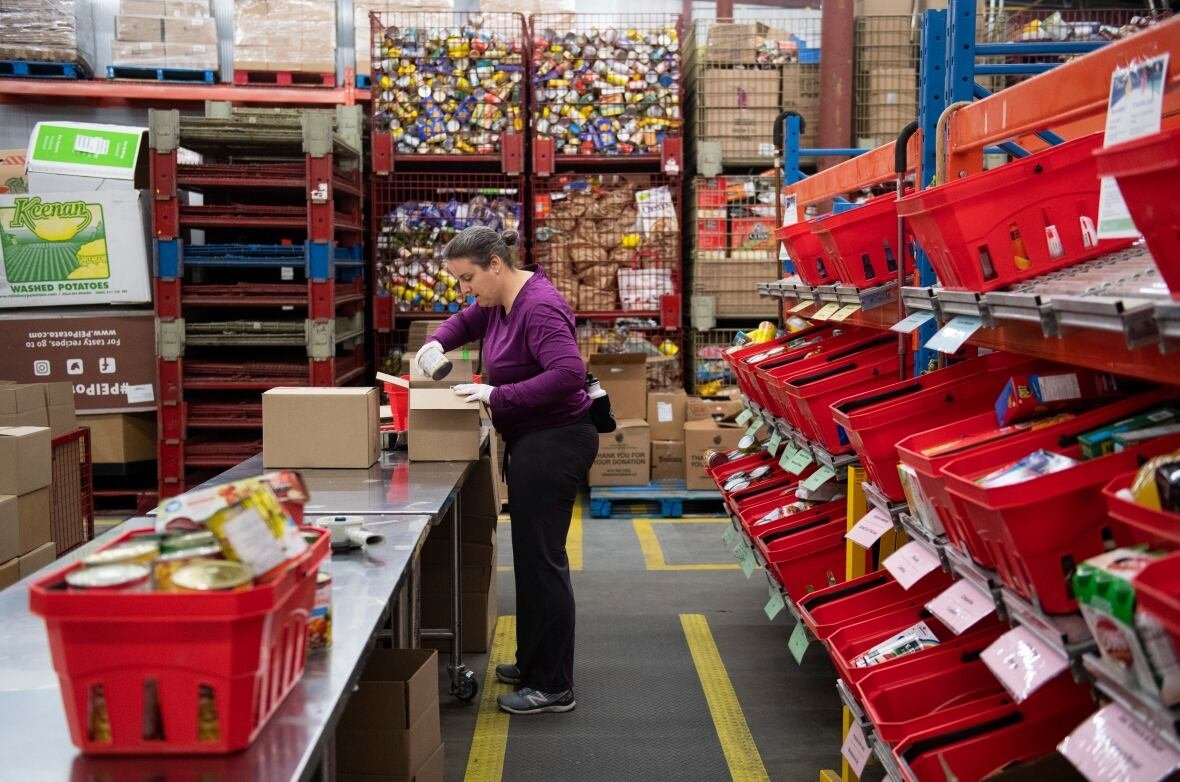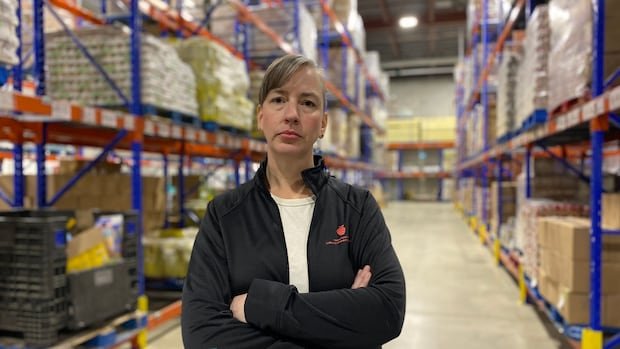The Ottawa Food Bank is announcing a significant decrease in donations to local food programs this year, citing unprecedented demand and escalating food prices.
CEO Rachael Wilson highlighted the challenge of resources, food supplies, and funds not keeping up with the community’s needs.
Collaborating with 98 food programs citywide, the food bank served over half a million clients in 2024. However, in 2025, all partner programs will experience a reduction in food shipments ranging from 20% to 50%.
Expressing regret over the situation, Wilson emphasized the necessity of these decisions based on current circumstances.
Wilson mentioned that the food budget in 2019 was $1.7 million, which has dramatically increased to nearly $9.8 million this year to meet the soaring demand.
Anticipating insufficient resources, Wilson stated, “This is an unprecedented period for food banks, and unfortunately, not in a positive way.”
‘A food emergency’
Dennis Hansen, manager of the Centretown Community Food Centre, expressed concern over the impact of a 40% reduction in food supplies on clients, stressing the need to take proactive measures.
To bridge the gap, Hansen’s team plans to intensify fundraising efforts, although uncertainty looms due to the escalating demand.
In December, the center recorded a record monthly service of 1,600 clients, reflecting a 50% year-over-year increase in their client base, emphasizing the severity of the situation as a food emergency.
While current donations can sustain the center for a few months, Hansen expressed concerns about future shortages, particularly as spring approaches.

Harmony House, a transitional shelter in Ottawa, also faces fundraising challenges to support its clients amidst the food supply cuts.
Executive director Marilyn Matheson highlighted the difficulties in fundraising while emphasizing the critical need to provide sufficient food to vulnerable families.
Matheson pointed out that the reduced food provisions, now lasting only three days, significantly impact women and families seeking assistance.
Emphasizing the urgency of the situation, Wilson urged governments to allocate more funding to address the city’s escalating food insecurity.
While the City of Ottawa currently covers a small portion of the food bank’s budget, Wilson stressed the importance of increased support from provincial and federal authorities.
Leanne Keddie, an accounting professor at Carleton University, echoed the call for additional funding while advocating for systemic changes to address the root causes of food insecurity.
Keddie emphasized the need for long-term solutions like universal basic income and greater accountability in food resource management to prevent recurring crises.

